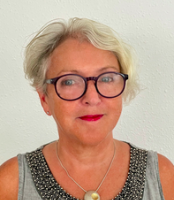
Bio
Carmel earned her doctorate from St Georges Medical School, University of London, UK, and is currently registered with the Nursing Midwifery Council (NMC) as a mental health and adult nurse and has over 30 years’ experience in delivering nursing education at both undergraduate and postgraduate level, including curriculum development, specifically in the area of addiction; and was the course developer of the first Masters in co-morbidity (dual diagnosis) in Europe. Carmel is currently President of the International Nurses Society on Addiction (www.intnsa.org). She has written extensively in the area addictions, workforce development and training, and in 2017 co-chaired a Public Health England working group on the nurses’ role in the treatment and recovery addiction pathways. Carmel has also served as a Member of the Advisory Council for the Misuse of Drugs (ACMD)(2002 -2011) – a Standing Committee which advises the UK Government on drug issues and policies. In 2015 in recognition of her contribution to addiction practice, she was awarded a Fellowship by Distinction and entered onto the membership register for the UK Faculty of Public Health. Carmel has provided training to addiction professionals throughout the world and is a member of The International Society of Substance Use Prevention and Treatment Professionals (ISSUP) and holds credentials ICAP-III from the Colombo Plan-ICCE.
Abstract
Leveraging the Role of the Nurse in Drug Demand Reduction (DDR)
Nurses make up the greatest portion of the health service workforce globally, and in some countries, this extends to social care. The World Health Organization (WHO) in their report on the State of the World’s Nursing (2020) which captures data from 191 countries reported that there are 27.9 million nurses globally. The report identifies 19 million professional nurses who have trained at least 3-4 years, and 6 million associate professional nurses who have trained between 1-2 years.
Recognized as major contributors in the delivery of health and social care in a wide range of settings, including acute and primary health care; secondary and tertiary services, nurses provide a significant opportunity to advance global health and wellbeing at the local (i.e., country), regional and global level.
Most individuals with substance use problems are not seen by specialists, but in general practice, hospitals, accident and emergency units, and in more generic locations such as social services, schools, prisons. All settings where nurses work and offer care.
This presentation will offer an overview of how nurses are uniquely positioned to provide high-quality, evidence-based addictions nursing care for patients, families, populations and communities.
